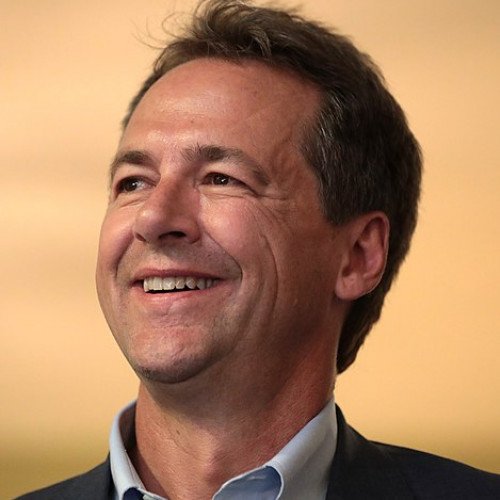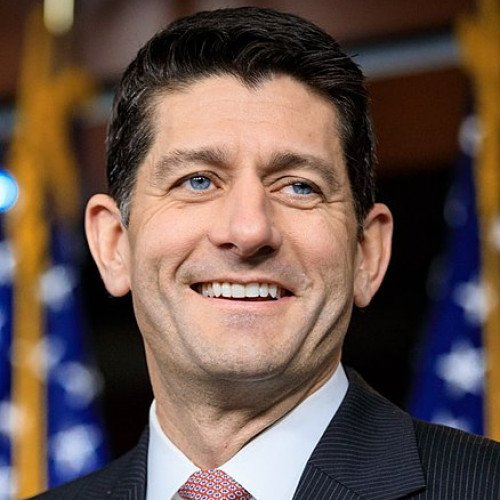Steve Bullock VS Paul Ryan

Steve Bullock
Stephen Clark Bullock (born April 11, 1966) is an American politician and lawyer, who served as the 24th governor of Montana from 2013 to 2021. He is a member of the Democratic Party. Born in Missoula, Montana, Bullock graduated from Claremont McKenna College and Columbia Law School. He began his career working as legal counsel to the Secretary of State of Montana before becoming the Executive Assistant Attorney General and acting Chief Deputy Attorney General of Montana. Bullock then entered private practice as a lawyer for Steptoe & Johnson. He was an adjunct professor at George Washington University Law School before opening his own law firm upon returning to Montana. In 2008, Bullock was elected Attorney General of Montana, and he served one term from 2009 to 2013. Bullock declared his candidacy for governor of Montana on September 7, 2011. The seat was open in 2012, as incumbent governor Brian Schweitzer, a Democrat, could not seek reelection due to term limits. Bullock won the Democratic primary with 87% of the vote and defeated Republican former Congressman Rick Hill in the general election with 48.9% of the vote. In 2016, Bullock was reelected with 50.2% of the vote, defeating Republican nominee Greg Gianforte. Bullock chaired the National Governors Association from 2018 to 2019. He was a Democratic candidate for President of the United States in 2020. After suspending his presidential campaign, he announced his candidacy for the United States Senate in the 2020 election. On November 3, Bullock lost to incumbent Senator Steve Daines.
Statistics for this Xoptio

Paul Ryan
Paul Davis Ryan (born January 29, 1970) is a retired American politician who served as the 54th speaker of the United States House of Representatives from October 2015 to January 2019. He was also the 2012 vice presidential nominee of the Republican Party, running unsuccessfully alongside Mitt Romney. Ryan, a native of Janesville, Wisconsin, graduated from Miami University in 1992. He spent five years working for Republicans in Washington, D.C. and returned to Wisconsin in 1997 to work at his family's construction company. Ryan was elected to Congress to represent Wisconsin's 1st congressional district the following year, replacing an incumbent Republican who ran for U.S. Senate. Ryan would represent the district for 20 years. He chaired the House Budget Committee from 2011 to 2015 and briefly chaired the House Ways and Means Committee in 2015 prior to being elected Speaker of the House in October 2015 following John Boehner's retirement. A self-proclaimed deficit hawk, Ryan was a major proponent of Social Security privatization in the mid-2000s. In the 2010s, two proposals heavily influenced by Ryan—"The Path to Prosperity" and "A Better Way"—advocated for the privatization of Medicare, the conversion of Medicaid into a block grant program, the repeal of the Affordable Care Act, and significant federal tax cuts. As Speaker, he had a role in passage of the Tax Cuts and Jobs Act of 2017. His other major piece of legislation, the American Health Care Act of 2017, passed the House but failed in the Senate by one vote. Despite his past fiscal conservative rhetoric, Ryan's tenure as Speaker of the House—most of which coincided with a period of unified Republican control of the federal government—saw a significant increase in federal government spending and deficits. Ryan declined to run for re-election in the 2018 midterm elections. With the Democratic Party taking control of the House of Representatives, Nancy Pelosi succeeded Ryan as Speaker of the House.